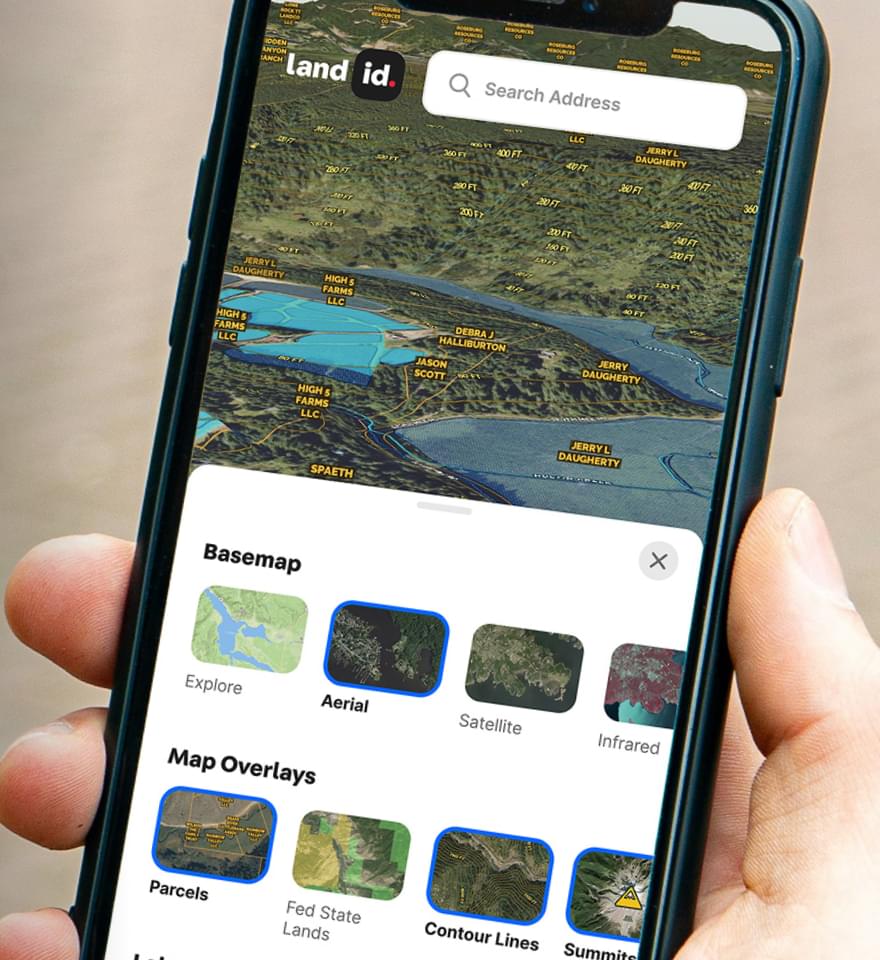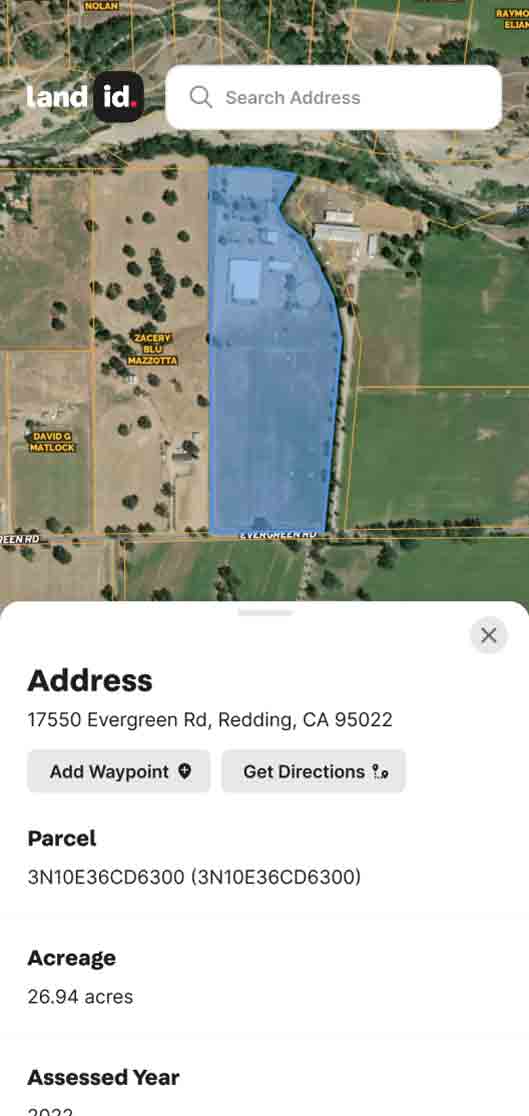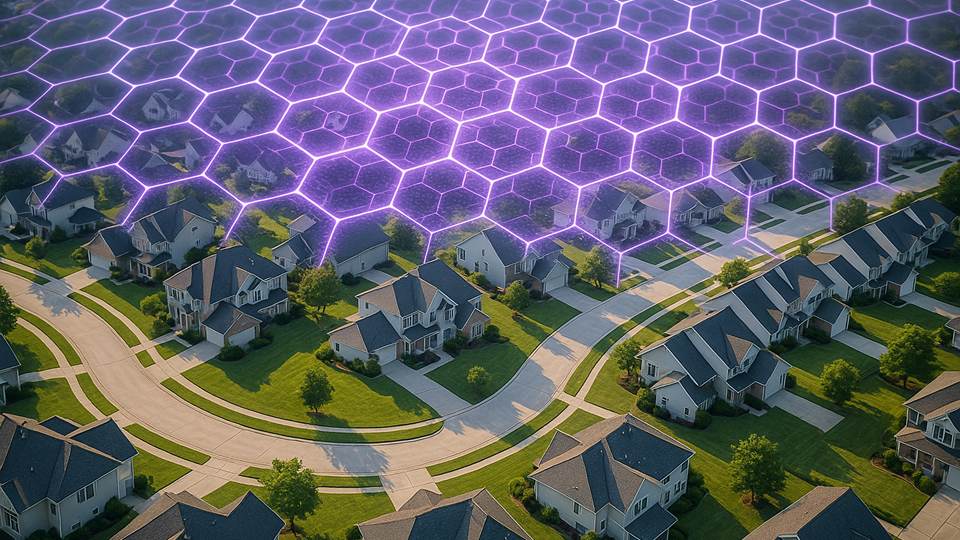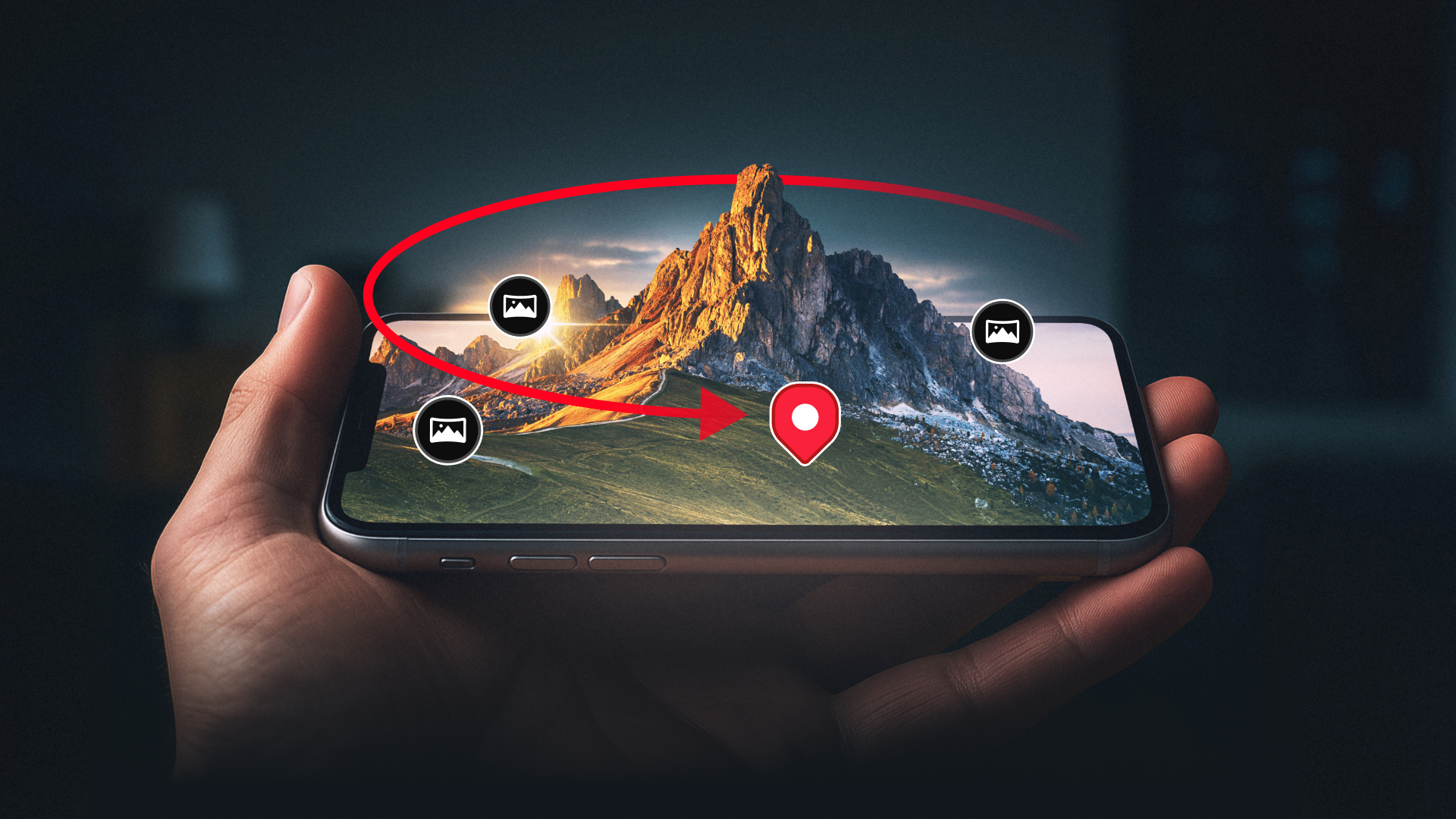You're staring at two identical properties. Same price. Same size. Same location.
But one has blazing-fast fiber internet. The other? Dial-up speeds that make loading emails feel like watching paint dry.
Which property wins? The answer seems obvious now. But until recently, discovering fiber availability meant endless phone calls to internet providers, digging through confusing internet provider maps, or worse – finding out after you've already committed.
Not anymore.
What Is the Fiber Optic Layer?
The Fiber Optic Layer transforms how you see internet speed and infrastructure on any property. Think of it as X-ray vision for connectivity.
This new data overlay shows you:
- Fiber service density through color-coded hexagons across your map
- Available internet speeds for any address (both upload and download)
- Service provider names and their coverage areas
- Business vs. residential plans to match your specific needs
The visual representation makes spotting connectivity goldmines effortless. Dense fiber areas glow with rich colors. Internet dead zones appear sparse and pale. You'll know at a glance which properties offer digital advantages.
[EMBED MAP]
Why Fiber Matters More Than Ever
Remote work isn't going anywhere. Home offices have become permanent fixtures. Video calls happen daily, not occasionally.
Properties with robust fiber connections command premium prices. They attract better tenants. They sell faster. They future-proof investments against changing work patterns.
But here's what most people miss: fiber availability often correlates with other valuable infrastructure. Areas with advanced internet typically feature better electrical grids, newer utilities, and forward-thinking municipal planning.
Two Game-Changing Use Cases
Commercial Development: The Power-Speed Connection
Smart developers know that modern businesses need two things: reliable power and lightning-fast internet.
The Fiber Optic Layer works brilliantly alongside transmission line data. You can identify locations where high-voltage power lines intersect with dense fiber networks. These spots become prime candidates for:
- Data centers requiring massive power and connectivity
- Manufacturing facilities with IoT and automation needs
- Office complexes attracting tech-forward tenants
- Mixed-use developments serving digital nomads
Add contour data to this mix, and you'll spot level building sites that minimize grading costs. The combination reveals development sweet spots that others overlook.
Residential Gold: The Remote Worker's Paradise
Remote workers have specific property needs. They want fast internet, peaceful surroundings, and minimal maintenance headaches.
Combine the Fiber Optic Layer with these overlays:
- Land use data to avoid industrial noise
- Wetlands information to prevent mosquito problems
- Flood plain maps to ensure dry basements
- Contour lines to find level yards perfect for home offices
This combination reveals properties where remote workers can thrive. Imagine marketing a home as "the perfect work-from-anywhere retreat" – complete with gigabit speeds and zero flood risk.
How It Changes Your Daily Work
For Real Estate Agents
Stop losing listings because competitors highlight connectivity advantages you didn't know existed. The Fiber Optic Layer helps you:
- Showcase hidden property value through internet speeds
- Answer client questions about work-from-home potential
- Create compelling listing presentations with visual proof
- Identify properties perfect for specific buyer types
For Investors and Developers
Infrastructure drives property values. The Fiber Optic Layer reveals infrastructure others can't see:
- Spot emerging neighborhoods with new fiber installations
- Evaluate properties for short-term rental potential (remote workers love fast internet)
- Assess commercial sites for tech-dependent businesses
- Plan developments around existing connectivity advantages
For Appraisers and Contractors
Property evaluation requires understanding all infrastructure elements. Fiber connectivity now ranks alongside water, sewer, and electrical systems in importance:
- Include internet infrastructure in property assessments
- Plan construction projects around existing fiber lines
- Evaluate properties for modern business use
- Provide clients with comprehensive infrastructure reports
The Counterintuitive Truth About Fiber
Here's something that might surprise you: the best fiber coverage doesn't always exist in major cities.
Many rural communities have invested heavily in fiber infrastructure to attract remote workers and businesses. These areas often offer superior speeds at lower costs than urban markets.
The Fiber Optic Layer reveals these hidden gems. You'll discover small towns with world-class connectivity surrounded by natural beauty and affordable real estate.
Getting Started Is Simple
The Fiber Optic Layer integrates seamlessly with your existing Land ID workflow. No new learning curve. No additional costs. Just enhanced intelligence for every property search.
Access the layer through your standard overlay menu. Toggle it on alongside other data layers. Watch as connectivity patterns emerge across your search area.
The hexagonal visualization makes patterns obvious. Dense fiber areas show rich, saturated colors. Sparse coverage appears lighter and more scattered. You'll develop an eye for connectivity hotspots within minutes.
The Fiber Optic Layer is available now to all Land ID subscribers at no additional cost. Access it through your standard overlay menu alongside 40+ other data layers.
Try it out along with the rest of Land ID’s powerful features FREE for 7 Days. Click here to get started.
Basemaps & Overlays
Our platform offers a wide range of basemaps and overlays, including satellite imagery, parcels, and topographical maps, giving users the flexibility to choose the most appropriate view for their needs.

Continue Reading





